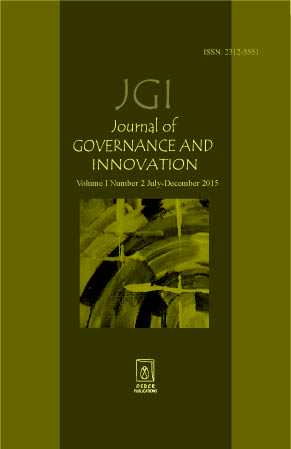A society without crime is unthinkable and also a society laden with influx of crimes and disputes is not at all a safe abode for human habitation. So a balance has to be maintained and this very responsibility is preserved by Judiciary. The aim of this paper is to evaluate the role of judiciary in establishing rule of law and its impact on good governance in Bangladesh’s rolling transition of democracy. Because an independent and credible judicial system is a sin qua non for rule of law and rule of law is a sin qua non for good governance in a country. This paper highlights on few core aspects of rule of law such as- absence of arbitrary exercise of power and protecting the rights of justice of citizens. This paper mainly partakes the fundamental task to evaluate the effectiveness of judiciary of Bangladesh in 2001-2006 to promote the culture of good governance in Bangladesh. So this paper presents a detail and in depth analysis of the effectiveness of Judiciary by collecting data from newspaper, articles, annual reports from different sources and renowned books to promote quality governance in Bangladesh during that particular time. The key findings of the paper is: democratic political environment is the most crucial for rule of law and good governance but the then state of political culture in Bangladesh was very shocking which impeded establishment of rule of law, human rights and democratic governance. The main learning lesson of this paper is that rule of law is one of the most crucial elements of good governance and judiciary is a very vital institution of government to establish rule of law in a country.



 Upcomming Insearch Conference 2021
Upcomming Insearch Conference 2021 Today 0
Today 0